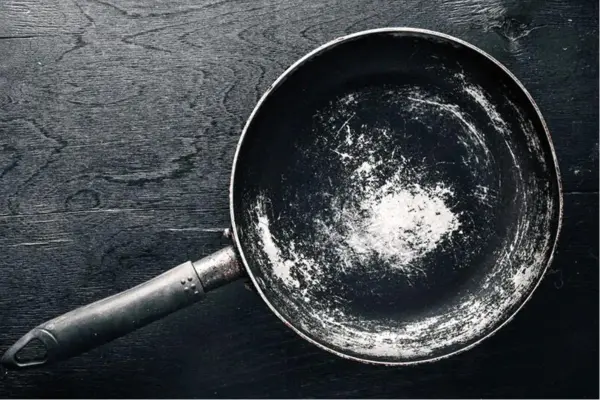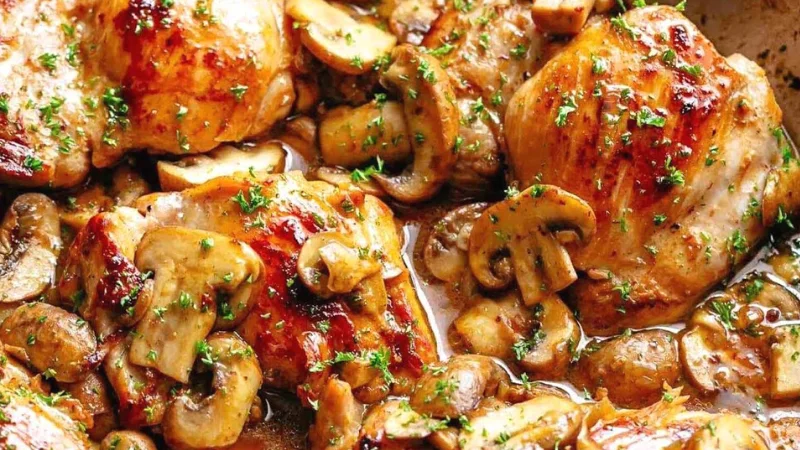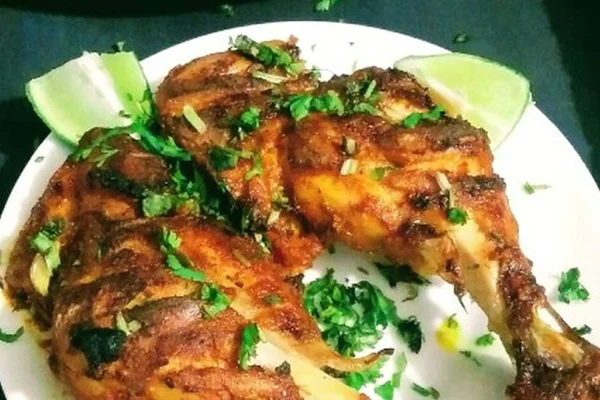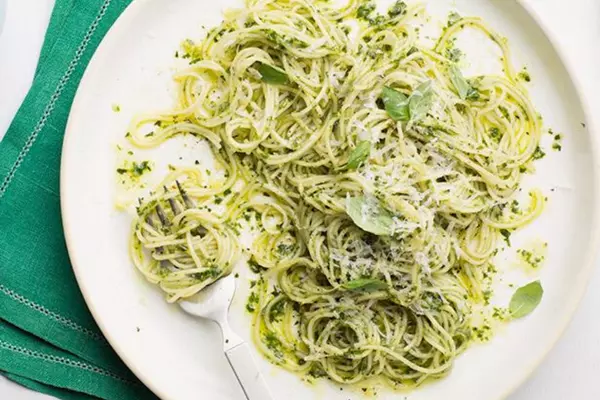Non-stick pans are a common option in many kitchens all around the world because of how convenient and simple they are to use.
They provide an excellent cooking surface that allows food to be cooked with minimal oil and prevents sticking.
However, over time, these pans can become scratched and worn. This raises the question: Is it safe to use scratched non stick pans? Let’s dive deeper into this topic and explore the potential risks associated with using such pans.
Understanding Non-Stick Coatings
Prior to talking about the safety issues, it’s critical to comprehend how non-stick coatings function. Teflon, also known as polytetrafluoroethylene (PTFE), is primarily used to coat non-stick pans.
This coating reduces the surface friction, making it difficult for food to stick. It also allows for easy cleaning and requires less oil during cooking.
Is It Safe To Use Scratched Non Stick Pan?
Using a scratched non-stick pan is generally not recommended as it can pose potential risks. Here are a few reasons why it may not be safe:
Release Of Toxic Fumes
One of the primary concerns with scratched non-stick pans is the release of toxic fumes.
Perfluorooctanoic acid (PFOA), which is regarded as a possible carcinogen, can be released by the damaged coating when it is subjected to high heat.
These fumes can be dangerous to breathe in, especially if you do so for an extended period of time or have respiratory problems.
Chemical Leaching Into Food
Another risk of using scratched non-stick pans is the possibility of chemicals leaching into the food being cooked.
The damaged coating can interact with the ingredients, transferring the chemicals to the food.
While studies are ongoing to determine the extent of this risk, avoiding consuming food cooked in scratched non-stick pans is generally advisable.

Increased Risk Of Scratches
A scratched, non-stick pan is more prone to further scratches, especially when using metal utensils.
These scratches can worsen the condition of the coating, making it more likely to release toxic substances or leach chemicals into the food.
It’s crucial to be cautious when using utensils and opt for non-abrasive alternatives.
Proper Maintenance Of Non-Stick Pans
To extend the lifespan of your non-stick pans and minimize the risks associated with scratches, proper maintenance is essential. Here are a few tips to help you take care of your non-stick cookware:
- Avoid Metal Utensils: Metal utensils can easily scratch the coating. Instead, opt for wooden or silicone utensils that are gentle on the surface.
- Use Wooden Or Silicone Utensils: These utensils are less likely to cause scratches and are safe to use with non-stick pans.
- Handwashing And Avoiding Abrasive Cleaners: Avoid using abrasive cleaners or scrubbing pads that can damage the coating. Handwashing with mild dish soap and a non-abrasive sponge is the best way to clean non-stick pans.
Alternatives To Scratched Non-Stick Pans
If your non-stick pan has become heavily scratched or worn, it might be time to consider alternative cookware options. Here are a few alternatives that provide excellent cooking performance:
- Seasoned Cast Iron: Cast iron pans offer excellent heat retention and durability. With proper seasoning, they develop a naturally non-stick surface that can handle high heat and is free from chemical coatings.
- Stainless Steel: Stainless steel pans are known for their durability and resistance to scratches. While they may require more oil or cooking spray to prevent sticking, they are a safe and reliable choice.
- Ceramic Cookware: Ceramic-coated pans have a non-stick surface that is free from PTFE and PFOA. They are generally safe to use, but following the manufacturer’s instructions for proper care and maintenance is essential.
Conclusion
It is unsafe to use scratched non-stick pans due to their potential health risks. The release of toxic fumes, chemical leaching into food, and increased risk of further scratches make replacing or avoiding such pans advisable.
Proper maintenance, including using non-abrasive utensils and handwashing, can help prolong the lifespan of non-stick pans.
However, if your non-stick pan is heavily scratched, exploring alternative cookware options that prioritize your health and safety is recommended.
- How To Make Parisa Recipe The Safe & Tasty Way - July 8, 2025
- Copycat On The Border Queso Recipe At Home - July 6, 2025
- Coconut Cream Pie Recipe With Rich, Creamy Filling - July 6, 2025


